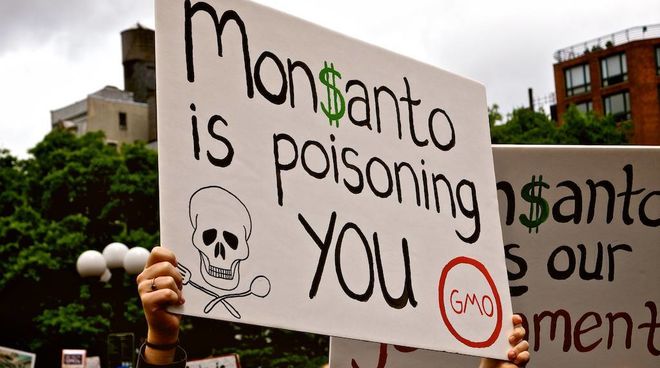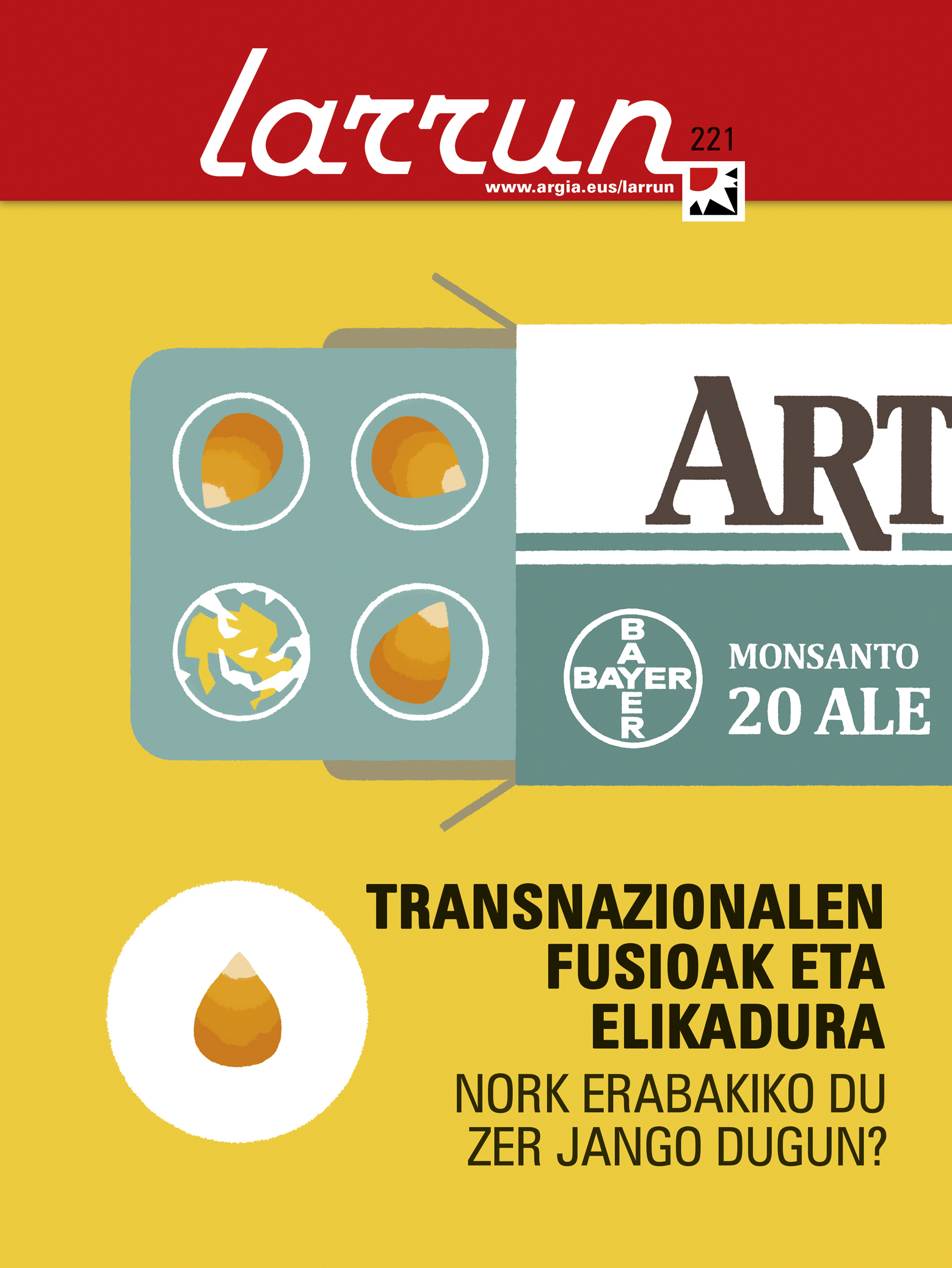Great gift to GM producers in Brussels: controls are over
- On 7 February the European Commission took an important decision in favour of agro-industry: it will not classify seeds with genetically modified seeds using the NBT New Breeding Techniques technique as GMOs. Controls, monitoring and obligations to date on GMOs will not be diverted. In the end, we have a wonderful gift to multinationals seeking control of life through the privatization of seeds. In order for GMOs (GMOs) to be nearly 30 years old, we have set ourselves in the commitment of the promoters to make a ttip at the meeting.

Replace the designation of GMOs or GMOs (Genetically Modified Organism) with that of NBT or TGB (New Genomic Technique) to differentiate it from the bad reputation accumulated at the base and before. The truce works: the European Commission approved on 7 February that bans and obligations on GMOs are not intended for GMOs. 307 voted in favour, 236 against and 41 abstained. Jessica Polfjärd, the voting rapporteur, considered "historic": "After decades of blockade, Parliament has finally voted in favour of science, food security and the support of European farmers".
Although it was possible to popularize the complex issue of GMOs, focused on the field of science, which end up in our dishes, it seems that GMOs are far from us. Several scientists assign them the name "new GMOs" to warn of the direct relationship between them. However, producers and supporters claim that they are not GMOs because they are given a different technique: if in GMOs an external gene is added to the organism, without adding anything to GMOs, it adapts to the genetics of the organism. This access can be achieved with the CRISPR CAS 9 tool used to cut, disable or mold DNA. So they can get gluten wheat, corn that can withstand drying or tomatoes resistant to certain viruses. In the words of his supporters, the "necessary" advances for cultivation are the seeds obtained through this technique: "We have here a more sustainable agriculture, more competitive and stronger in the face of extreme weather conditions, with less pesticides and seasonings", in the words of Polfjärd.
The four companies - Bayer, Syngenta, Corteva, BASF - have
60% of global seed marketing, which also has 70% of the market for insecticides and herbicides.
However, its opponents are threatened by the European Commission’s vote. Firstly, because not classifying them as GMOs means that GMOs will not be followed scientifically, and we do not know what foods they are, because they have no obligation of traceability. According to Greenpeace it is a "major setback" in terms of environmental and health security. The lack of definition of GI as transgenic has been contrary to that of the French Food, Environmental and Labor Safety Agency, ANSES, because this classification "is not scientifically justified".
Furthermore, it is not clear how they are developing negatively in their future natural expansion. Both pollination of bees and wind propagation are uncontrollable pollen travel and therefore TGB dissemination. In view of the fact that traceability will not be channelled, they will be used outdoors without knowing what is not the case with GMOs. The main concern of farmers in organic production has always been, and the risk remains with TGB. "It is a sad day [vote of the European Commission] for farmers and nature," according to ecologist MEP Benoît Biteau.
GMOs almost 30 years, what kind of bilana?
What kind of bilana can we do since the first GMOs were marketed in 1996? 10% of the world's cultivated land is transgenic and its distribution is completely different: in the USA, Canada, India, Argentina and Brazil 90%. Four plants have almost a monopoly: soy (52%), maize (30%), cotton (13%) and rapeseed (5%), followed by a small number of peines, beterrabas or other fruits and vegetables. In the case of Europe, the only production is Monsanto (the current Bayer) which created the MON810 maize, which in 2010 also received authorization for the production of the Amflora estate, which lost in 2013 because it was not commercially interesting and because it did not properly comply with the administrative authorisation route. We can cause it in five countries, but 95% are from the Spanish State and Portugal. Germany, Austria, Luxembourg, Hungary, Greece, Bulgaria, Poland and the French State are prohibited from production. However, it may be imported and 70 types of GMOs are currently available for human and/or animal feed. With regard to traceability, manufacturers should label whether they are composed of GMOs, but in the case of meat, eggs or dairy products from animals that have been reared with GMOs they do not have to specify anything.

Although we were told that it was going to be a way to combat global hunger, that has not happened. Worse still, peasants have weakened their sovereignty, which can be ridden by poverty in poor countries of the Global South. In fact, patented seeds have to be acquired each year, becoming dependent on multinationals.
GMOs are not clear in terms of health and the environment. If these are scientific studies that show damage, others warn of the lack of danger. The problem is that we caused an interesting opposition in many research: following the research of the French Institute INRA in December 2016 in Plos One, in 40% of the 672 scientific studies analyzed there was an opposition of interest. These are research that GM producers have carried out, in part or in full, or are directly targeted by these agro-industrialists.
Essentially, a new report published on 29 September by the NGO Corporate Europe Observatory confirmed the presence of non-neutrality as regards the new GMOs. The three main scientific organisations that have multiplied their favourable expressions: European Plant Science Organisation (EPSO), All European Academies (ALLEA) and European Sustainable Agriculture Through Genome Editing (EU-SAGE), researched and directly related to Bayer/Monsanto, BASF, producers of Cortgengargenta. Suppose that 64% of EPSO members on agricultural techniques and 32% of EU-SAGE are covered by GM marketing, while 38% of EPSO and 23% of EU-SAGE relate to GM patents.
The non-classification of GMDs as GMDs means that GMDs will not be followed scientifically, and we do not know where they are because they have no obligation of traceability.
Finally, GMOs involved pesticides, which has not happened. Regarding culture, two types of GM stand out: either a retention molecule is added to the herbicides, or an insecticide molecule is introduced directly to eliminate destructive insects. But Monsanto/Bayer himself had to confess that insects and "herbs" have adapted to GMOs. The use of pesticides and insecticides is not the case, and on the contrary has increased by areas. As a result, GMO says: Quel bilan? (GMO: what assessments?) In Article 3, Mathilde Soret: "Although nothing shows us the harmfulness of GMOs to the environment and health, the carcinogenic risk of some pesticides is clear and undemonstrable."
Patent to privatize life
Among the damage is the privatisation of life resulting from the patentability of seeds, which is the fundamental objective of the multinationals. Currently, 60% of global seed marketing is in the hands of the four companies, Bayer/Monsanto, Syngenta, Corteva and BASF, which also have 70% of the market for insecticides and herbicides.
If the European Commission considers that the transgenic classification of GMOs would constitute an additional obstacle to global food security, it should be stressed that the real risk is that all seeds will be in the hands of a single multinational. Although Brussels has opposed the "patentability of COPD plants", it should be noted that it does not rule out the problem, as it has not rejected the patentability of ECG techniques. In this sense, we have only to increase control over life and without institutional and citizen supervision.
José Ramón Olarieta Alberdi is a doctor in agronomist engineering and professor at the University of Lleida, as well as a member of the Catalan association Som what Sembrem.El last year published a book on transgenics: Are GMOs really safe and necessary? In April, Leitza and... [+]
Laborantza-industrian egin den inoizko akordiorik handiena gelditzeko eskatu diote milioi bat lagunek Europari: Monsanto eta Bayer enpresek indarrak batuko dituzte galarazi ezean. Hazi transgenikoen eta industria farmazeutikoaren arteko lotura 2016tik datorren arren, azken... [+]
Europako Batzordeak iragarri du sakon aztertu nahi duela Bayer konpainiak Monsanto erosteak kalterik egingo ote dion pestiziden eta hazien merkatuari. Bruselak adierazi du fusio-operazioa burutzeak bi arlo horietako munduko enpresarik handiena sortuko lukeela, eta horrek... [+]
Egun erabiltzen diren hazi hibridoak multinazional espezializatuek soilik egin ditzakete, eta horien liderra Monsanto da. Merkatura zabaltzen dituena, berriz, Heinz multinazional boteretsua da. Bide beretik jarraituz gero, elikadura merkatu pribatuen eskuetan bukatuko duela... [+]
Garagar transgenikoa baliatuko al dute aurki Heineken eta Carlsberg garagardoek? Horren beldur dira hainbat erakunde, Europako Patenteen Bulegoak bi enpresa horiei adjudikatu baitizkie genetikoki eraldatutako garagarra baliatzea ahalbidetuko lieketen patenteak.























